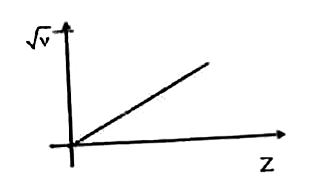Which is the most fundamental property of an atom
Step-by-Step Solution:
1. Understanding Atomic Structure: An atom consists of a nucleus, which contains protons and neutrons, surrounded by electrons. The protons in the nucleus carry a positive charge.
2. Definition of Atomic Number: The atomic number of an element is defined as the number of protons present in the nucleus of an atom. It is denoted by the symbol 'Z'.
3. Significance of Atomic Number: The atomic number is crucial because it uniquely identifies an element. Each element has a distinct atomic number, which determines its position in the periodic table and its chemical properties.
4. Isotopes and Their Relation to Atomic Number: Isotopes are variants of the same element that have the same number of protons (atomic number) but different numbers of neutrons, resulting in different mass numbers. For example, hydrogen has three isotopes: protium (¹H), deuterium (²H), and tritium (³H).
5. Isobars: In contrast to isotopes, isobars are atoms of different elements that have the same mass number but different atomic numbers. For example, carbon-14 (¹⁴C) and nitrogen-14 (¹⁴N) are isobars.
6. Conclusion: The most fundamental property of an atom is its atomic number because it determines the identity of the element and its chemical behavior.
---
Topper's Solved these Questions
- CLASSIFICATION OF ELEMENTS AND PERIODICITY IN PROPERTIESBOOK - ICSECHAPTER - CLASSIFICATION OF ELEMENTS AND PERIODICITY IN PROPERTIESEXERCISE - SHORT ANSWER TYPE QUESTIONS
33 Videos
- CLASSIFICATION OF ELEMENTS AND PERIODICITY IN PROPERTIESBOOK - ICSECHAPTER - CLASSIFICATION OF ELEMENTS AND PERIODICITY IN PROPERTIESEXERCISE - ESSAY (LONG ANSWER) TYPE QUESTIONS
27 Videos
- CLASSIFICATION OF ELEMENTS AND PERIODICITY IN PROPERTIESBOOK - ICSECHAPTER - CLASSIFICATION OF ELEMENTS AND PERIODICITY IN PROPERTIESEXERCISE - REVIEW EXERCISES
29 Videos
- CHEMICAL THERMODYNAMICS BOOK - ICSECHAPTER - CHEMICAL THERMODYNAMICS EXERCISE - NCERT TEXT-BOOK. EXERCISES
22 Videos
- ENVIRONMENTAL CHEMISTRY BOOK - ICSECHAPTER - ENVIRONMENTAL CHEMISTRY EXERCISE - NCERT TEXT-BOOK EXERCISE
20 Videos
Similar Questions
Knowledge Check
Atomic number is the fundamental property of an element'. Write the name of the scientist who proved it by an X-ray experiment.
Aa)BohrBb)NewlandsCc)MendeleevDd)MoseleyAssertion:Atomic number is a more fundamental property of an element than its atomic mass.
Reason:Atomic number is equal to number of protons in an atom.AIf both assertion and reason is the correct explanation of assertion.BIf both assertion and reason is the correct explanation of assertion.CIf both assertion and reason is the correct explanation of assertion.DIf both assertion and reason is the correct explanation of assertion.
Who proposed that atomic number is the fundamental property of an element?
View SolutionWhat is the self linking property of an atom known as ?
View SolutionWho classified the elements on the basis of fundamental properties of elements like atomic mass?
View Solution
Moseley said that the frequency of X-ray of an element increases with a regular increase in a fundamental property of elements. Name this fundamental property..
View SolutionWhich of the following is fundamental vector quantity.
View SolutionState the fundamental property on which the modern periodic table or long form of periodic table is based.
View Solution
